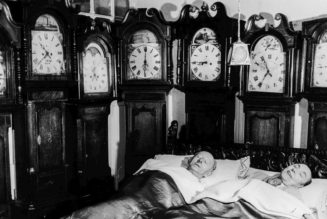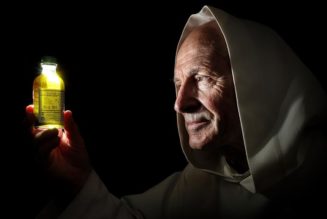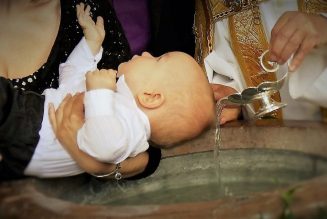
CLEVELAND — When Father Robert McWilliams was charged with sex and pornography crimes involving children just two years after his ordination, few were more stunned than those who had screened and formed him for priesthood.
This was a priest chosen and educated in the wake of the Church’s clergy sex-abuse scandal, someone who had undergone an intensive, detailed vetting process and seminary training steeped in teaching about sexual ethics and appropriate boundaries.
Although a sense of betrayal and shock always follows such allegations, in McWilliams’ case it was intensified by the fact that he had been ordained just two years before his arrest in December 2019. From the rector of his seminary and psychologists who evaluated him to his peers, those who thought they knew Robert “Bobby” McWilliams have continued to ask how someone who appeared to be a good priest could now be facing life in prison for sex crimes involving children.
A priest who had been in seminary with him, but asked not to be more specifically identified, said no one had suspected what was learned following McWilliams’ arrest. “There was not even an inkling, a clue … It’s not like ‘we always knew that guy was weird.’ It was not one of those situations at all.”
The priest added that looking back, he now sees McWilliams as having been masterful at concealing his behavior in an atmosphere that continually emphasized personal transparency. “He was skilled in the sense that he knew what to do to mask, to hide.”
McWilliams, 41, who will be sentenced Nov. 9, pleaded guilty in federal court in July to eight counts charging him with sex trafficking of a minor, sexual exploitation of a child and pornography involving children. Court documents state that beginning in 2017, he solicited sexually explicit images of minors online and engaged in sexual acts with minors in exchange for alcohol and other items of value. He also would use fake personas, including that of a teen girl, and social media mobile apps to contact his minor male victims, some of whom he knew through a parish where he had served as a seminarian. He got three of his victims to send him sexual photos and videos and sometimes threatened to reveal embarrassing information about them if they did not comply. After some victims refused to send more images, he sent sexually explicit photos to their mothers.
According to court documents, McWilliams also used Grindr.com, a social-networking and dating app for homosexual, transgender and bisexual people, to connect with a minor victim for commercial sex and then persuaded that victim to identify another minor for the same purpose. He met both multiple times for the purpose of engaging sex in exchange for money and alcohol.
Additionally, McWilliams was found to have a computer and external hard drive with hundreds of images and videos of child pornography and a cloud storage account with additional images and videos of child pornography that he had downloaded from the Internet.
Shocked and Betrayed
His arrest during a search of the rectory at St. Joseph Parish in Strongsville, where he was serving as parochial vicar, continues to haunt Father Mark Latcovich, president-rector of Borromeo and St. Mary seminaries in the Cleveland Diocese. Father Latcovich said his initial reaction was one of feeling horrified, betrayed and shocked that McWilliams could do such things given all that the seminary had provided for him. “Were there any flags that said, ‘Oh, now that this has happened, I did notice X’? Absolutely not.”
Father Latcovich said even the psychologists and counselors who had evaluated McWilliams were stunned. “I think unfortunately, this is the case of an individual who hid this,” he said. “He had a dark space in him and he never really came forward and trusted anyone to work with him.”
Father Latcovich said he still recalls what then-Cleveland Bishop Nelson Perez told him in a phone call from Rome following McWilliams’ arrest: “Only one person is responsible and that’s Bobby McWilliams. He’s the one who never allowed the formation program to help him.”
McWilliams and other seminarians had access to manifold resources designed to ensure their readiness for the priesthood, Father Latcovich told the Register. “Everything these guys need to be good and holy and wholesome and fulfilled priests is in the program.”
Before his ordination, McWilliams even attended the Institute for Priestly Formation in Omaha at a cost of about $10,000 to the seminary. Going to the Institute is considered an honor and is not something granted to every seminarian. “If that doesn’t open your soul, nothing can,” Father Latcovich said. “… He claimed that it really changed his life.”
However, he added, “If you’re hiding something and you don’t reveal it, nobody can help you – not the best of counselors, spiritual directors and formators.”
Had McWilliams acknowledged his struggles, he would have received help, Father Latcovich said, though he also may have realized that doing so would have kept him from being ordained. “But he would not have been in prison the rest of his life. We would have helped him.” Now, with his conviction, the diocese has sent the necessary documents to Rome to remove him from the clerical state and he is no longer receiving any diocesan compensation or benefits.
Procedures Reviewed
Since McWilliams’ arrest, the seminary has reviewed all its protocols and procedures for screening and formation, something Father Latcovich said is done annually. Some changes have been made, he said, but not necessarily as a result of what happened with McWilliams. The seminary also reviewed what they knew about McWilliams’ background. “We read through everything carefully and again, there was nothing,” Father Latcovich said. “That’s the irony of this whole thing.”
Had the seminary had the slightest indication of inappropriate behavior or tendencies on McWilliams’ part, he would have been removed, Father Latcovich said. “We have dismissed men for much less things we’ve known about, such as improper use of the Internet or violating boundaries after being warned.”
Additionally, if another seminarian had seen or experienced anything suspicious in McWilliams’ behavior, he could have reported it under strong protocols that have been in place for two decades and have been updated to reflect the language in a study on sexual misconduct in seminaries done by the McGrath Institute.
Well before entering the Cleveland Diocese seminary, candidates submit to psychological testing and a background check of their finances, police records and internet activity. The internet screening covers both postings on social media and sites visited by the candidate, who is asked to provide his cell phone number and email addresses. Father Latcovich works with a team to review all reports, which also are assessed by a psychologist on the staff who has been trained to know what the seminary is seeking in a candidate and what the formation program demands. Some candidates are rejected outright, and others are referred back to the vocation director with recommendations for further work on, for example, anger issues.
In keeping with Vatican directives on treatment of homosexuals in seminary formation, candidates who are found to have deep-seated homosexual tendencies are not accepted. The Vatican defines this as someone who practices homosexuality or supports the so-called “gay culture.”
“It goes down to this,” Father Latcovich said, “if they had been active homosexuals and had come out, that’s what the Holy See sees as deep-seated activity.”
Although the Vatican directives do not call for automatically excluding candidates who have homosexual tendencies that are part of “the expression of a transitory problem,” they do say those tendencies should be overcome at least three years before ordination to the diaconate.
The Screening Process
Before being accepted into the seminary McWilliams would have undergone an examination of his full sexual history. Father Latcovich said this employs an in-depth personalized questionnaire administered by a psychiatrist who can delve into the candidate’s answers and observe any nonverbal signals. For example, he said, “If a guy spends a lot of time and doesn’t answer a question, the psychiatrist can say, ‘I notice you paused. What were you thinking about?’”
The depth of the screening process, including the psychological testing and interviews, was such that it shocked Father Eric Garris, a classmate of McWilliams. Although Father Garris declined to speak with the Register, he talked openly about the experience of being evaluated in a homily given Aug. 19, 2018, on what it was like to become and serve as a priest in an environment clouded by the clergy sex-abuse scandal.
Father Garris told of how he sat across from a clinical psychologist who asked him hundreds of questions about his family of origin and his sexuality, including if he was attracted to children. Even though he understood why the question about children had to be asked, he said he nonetheless became angry and replied, “No way.”
During the nine years he spent in formation, he said much time was devoted to talking about boundaries, human formation and integration of sexuality. “The Church’s abuse crisis was always in view,” he said, and those who would be ordained realized they would be ministering to a Church still hurting from the sins of its clergy. Father Garris said he and other seminarians were taught to be cautious around children and to know that as priests their lives would be under a microscope.
Pornography Problems
Dr. Peter Kleponis, a psychologist who specializes in and has written about pornography addiction recovery, said he thinks that seminaries are doing a better job of screening candidates than they were 10 years ago, though he would like to see specific screening for pornography addiction be part of the evaluation process. He also recommends priest candidates undergo a sexual history assessment, as is done in Cleveland, and internet sex-screening test.
“Unfortunately,” he told the Register, “people do lie and a person can lie in interviews and tests. So, a person can sneak through under the radar.” Additionally, he said, because so much shame is associated with pornography use, addicts can be very good at hiding their behavior. For example, he said, many priests he works with for pornography addiction acknowledge that they never revealed their struggles while in seminary for fear of being kicked out.
That said, he added, “For most, porn is where they begin and end. Pornography is a gateway to sexual addiction but it doesn’t always move into that.” He said McWilliams likely was an exception to that and probably was addicted to pornography as well as to sex.
Because pornography has reached pandemic proportions in contemporary culture, the Cleveland seminary, aware that some candidates may have had a problem with it, offers help in the form of a support group and counselors, including one specializing in sexual addictions, Father Latcovich said.
Cleveland’s seminary also has a firewall on its computer system that flags visits to inappropriate sites and those who acknowledge having had a problem with pornography have additional filters, such as Covenant Eyes. Before entering, seminarians must sign a statement saying that the seminary reserves the right to monitor all internet activity and that there is to be no presumption of privacy when online. McWilliams would have signed this along with the diocesan code of conduct and a statement saying he had completed or would begin within a week VIRTUS Training for prevention of child sexual abuse.
Father Latcovich said McWilliams obviously could have circumvented the internet restrictions by going online without using the seminary’s system, but no one has been able to verify whether he did so as a seminarian. He would have been allowed while in the seminary to have a cell phone and his own computer, both of which would have been monitored when used to access the internet on the seminary’s system, but the crimes for which he has been charged reportedly started the year he was ordained.
McWilliams’ Double Life
As both a seminarian and priest, McWilliams appeared to be well-liked, affable and outgoing with a charming personality that betrayed none of the darkness contained in the revelations following his arrest. Father Latcovich said several men in the diocese’s college seminary even saw him as their inspiration for becoming priests.
During his formation, Father Latcovich said McWilliams and his fellow seminarians had the opportunity to listen to a woman who had been abused by a priest as a child. “She was not afraid to share the horror and the pain and there wasn’t a dry eye in the place. Bobby was one of the guys who stayed back and personally went up and gave her a hug. How could he reconcile that with what he did?”
Indeed, a woman who lives in the Cleveland Diocese, but asked not to be named, recalled being at an evening retreat McWilliams gave on prayer. “He has a wonderful singing voice, which I really appreciated as he led us in Eucharistic adoration. It’s hard to believe someone could live a double life like that.”
The woman said the situation with McWilliams is especially shocking and distressing because the quality of most of the diocese’s young priests is exceptional. “They are, as a rule, vibrant, orthodox and deeply prayerful. They embrace the fullness of the Church’s teachings on sexuality, including those on homosexuality. I’ve heard a number of their homilies and talks, which reflect a courageous but compassionate orthodoxy on hot-button issues.”
A man, who knew McWilliams from one of the parishes where he had served, did not want to comment on whether he had observed anything suspicious and asked not to be identified. But he told the Register, “I have witnessed the tremendous devastation and painful aftermath that this sick individual has inflicted on good families and innocent children. To see their pain and suffering through the most grotesque perversion of the priesthood is awful.” He said what happened should make all parents even more vigilant of those “wolves in sheep’s clothing” who are actively preying on children through phones and social media.
The fellow seminarian of McWilliams who asked that his name not be used said even with strict screening and formation, it is possible for someone to play the system and choose to do wrong. “We talked about these issues all the time . . . and we talked a lot about transparency. I don’t know if there’s any kind of protocol that would have fixed it.”
Added Father Latcovich, “If there was a magic thing that we could do that would predict this, we would be first in line to get it, and it would be worth all the money we could spend on this for the good of the Church.”
Join Our Telegram Group : Salvation & Prosperity









